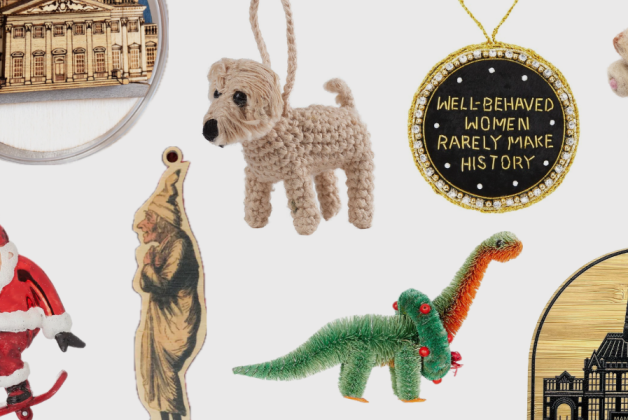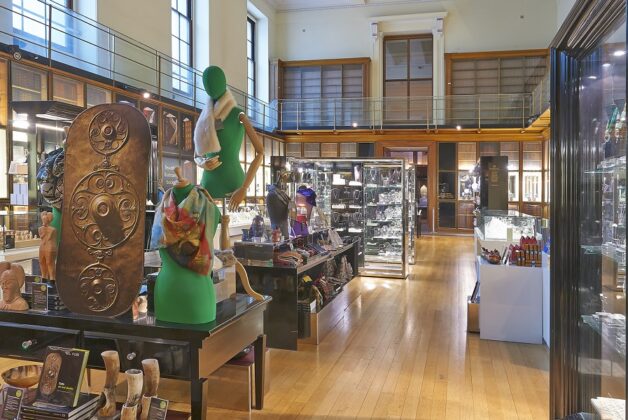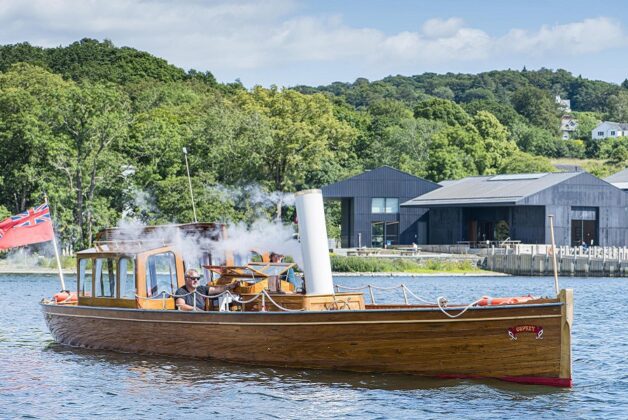Main Image: Replacing plastics - the new Vegware products, which have been introduced at The Horniman Cafe, are plant-based and fully biodegradable
Ever since the final episode of Blue Planet II in December 2017 the subject of plastic waste and its impact on the environment has aroused the nation’s, and the world’s, conscience like never before.
And as educators, the museum sector is in a position to lead by example, which was highlighted last year in a joint report from the Arts Council and Julie’s Bicycle Sustaining Great Art and Culture Environmental Report 2017/18.
In the past month a number of museums have declared Climate Emergencies as part of a campaign by Culture Declares Emergency, which was inspired by Extinction Rebellion and the School Strike For Climate.
As Sir David Attenborough said in his final address in the Blue Planet II series, which was a powerful rallying call to do more to protect the environment: “The future of all life now depends on us.”
At the Horniman Museum and Gardens in south London there have been a number of initiatives over the past year to improve its sustainability, and reduce its impact on the environment.
Its café is no longer stocking bottled water, instead offering visitors a choice of tap water refills or canned spring water and has removed all its plastic packaging and replaced it with plant-based alternatives.
The move away from bottled water – which came into effect on 1 April – is part of the Forest Hill attraction’s commitment to reduce single-use plastics, aiming in time to ditch them altogether from its site.
The Horniman Café’s pre-packaged spring water will be supplied by CanO Water, using aluminium cans. Although, it says, the aluminium cans are still a single-use product, they are a more sustainable choice than plastic bottles as they are more commonly recycled by consumers, and are infinitely recyclable.
Stocking canned water in the Horniman Café will mean 24,000 single-use plastic bottles per year are no longer being thrown away or recycled.
The Horniman's environmental drive has:
- replaced single-use takeaway plastics in the Café with Vegware products made from plants, including disposable coffee cups and straws
- introduced a plastic bag charge in its gift shop, with proceeds supporting its pioneering Project Coral conservation research
- installed a new water bottle refill point in the Gardens, one of more than 20 across London provided by the London Drinking Fountain Fund, which is led by #OneLess and the Mayor of London
- joined the #OneLess campaign, a rapidly growing movement of pioneering and progressive communities, business, and NGOs working to change the way people drink water in London and reduce the number of single-use plastic water bottles entering the ocean from London.
Brad Owen, Head of Commercial at the Horniman Museum and Gardens, said: “Ditching plastic water bottles is a major step towards ridding the Horniman of single-use plastics but it’s by no means the end of the process. We’re currently looking at alternative bags for the shop, and developing our own-brand reusable bottles and coffee cups to offer our visitors even more and even greener options.”
The museum says its commitment to combating plastic waste and raising awareness of the damage it does to the natural world will also be seen by visitors in numerous events and exhibitions this year, starting in May with a series of commissioned works by visual artist Claire Morgan, drawing on the theme of waste and the impact that humans have on their surroundings.
“We are a small organisation so we can be more dynamic with change,” says Owen.
The Horniman Café Ltd has been part of Horniman Museum Enterprises for the past 12 years and is the caterer’s only site, which Owen says has made it less complicated for the museum to influence and change the packaging they use.
“We have a sustainability group that’s cross-departmental and this has led to recycling water from our aquarium to use in the gardens and composting from the café into the garden,” he says. “Packaging became the next step and it’s only really been in the past year that there has been viable commercial alternatives.”
The Horniman has worked with a company called Vegware that has replaced all the single use plastics such as coffee cups, lids, cutlery, straws and sandwich bags and all the takeaway packaging.
“The benefits of this is that the museum we are fulfilling our mission statement and it’s really important that we lead the way on that. Trying to take our mission and organisational values and pushing those forward.”
Part of the Horniman Museum and Garden's mission statementThe Horniman connects us all with global cultures and the natural environment, encouraging us to shape a positive future for the world we all share
Vegware uses a material called polylactic acid that is light and looks like plastic but is biodegradable and fully compostable. Owen says that step one was to switch to this new packaging and step two will see an investment in a larger composter to cope with the volume. The new packaging material will be composted and even if some of it ends up in landfill it will breakdown, whereas with the plastic materials would survive for decades.
All of the museum’s food waste, cooked and uncooked, is composted in a Ridan Composter and goes as mulch into the gardens and 90% of our garden’s waste is composted and then reused. The museum also recycles 187,000 litres of water from the aquarium’s water filters and uses it in the gardens.
“I think at the moment we are doing what we can by facilitating all these initiatives but from a national perspective there needs to be more infrastructure and this needs to be implemented by councils and governments. I would argue that museums as educators and as a sector we need to lead the way and re-educate people about our environmental impact. There is some cost implication in doing this but it’s negligible and you can factor it into your price points.”
In the case of the CanO Water product, it works out at 20p more per unit than the plastic bottles and Owen believes visitors ‘will soak up that price if they understand the reason behind the change’. The museum has also installed three drinking fountains on site where it provides free water and also provide refills of tap water in the café, which represents 90% per cent of the water visitors and staff consume.
“Our core visitors are ethically aware and we get feedback through comment cards about our sourcing and the seasonability of our produce, which shows that they are interested in these matters,” says Owen.
In terms of sourcing, he says he is always keen to see the museum’s product range improving. This resulted in a long search for the right supplier that could replace the plastic products in the café. Vegware were chosen because they are UK-based and were able to replace the full range of products.
Sustainably sourced
The Horniman has been just as careful in sourcing its food and drink products and ensures all fish is sustainably sourced, coffee is fairtrade and suppliers are local. The museum uses a local Butcher to supply its meat, its beer is supplied by Brick Brewery in Peckham and Volcano Coffee in Brixton supply the coffee.
“These are small companies that look after our café as a client, their products are second to none and are very ethical,” he says. “For me from a commercial perspective it’s better to have smaller, high quality brands rather than nationally recognised large operations.” Its external caterer for weddings has also been leading the way in environmental issues, meaning the environmental drive continues for these private events.
With great strides been made to the sustainability of the café, the other major commercial arm of the museum, its shop, is also experiencing environmental change in its products.
Removing palm oil products
This has involved the removal of all products that contain palm oil and the introduction of products such as reusable water bottles and coffee mugs, the latter coming with the incentive of a discount on hot drinks in the café.
However, Owen says replacing plastic bags with recycled paper bags is the key aim. This has begun with a 5p charge on these to start with, which is donated to its Project Coral conservation research programme. “I have committed to not going beyond the current stock of plastic bags – so they will be the next plastic product to go. That should be at the end of the year.”
Paper bags
The alternative is paper bags, but Owen says that paper stock is very expensive in the UK at the moment, so potentially paper bags will cost a lot more than the plastic bags. “We will have to look at the usage of these bags and how many we get through and what the cost will be but it’s achievable.”
Another challenge to this issue is that some suppliers want a minimum order of 10,000 bags, which is the equivalent of three years stock for an organisation the size of the Horniman. So, the task at hand is to find suppliers that can print smaller numbers in the UK and getting that cost balance right.
“I think it is difficult to make the change and it does require people to take a lead and Blue Planet has had an impact on the way people think about the impact of plastic on the environment.”




